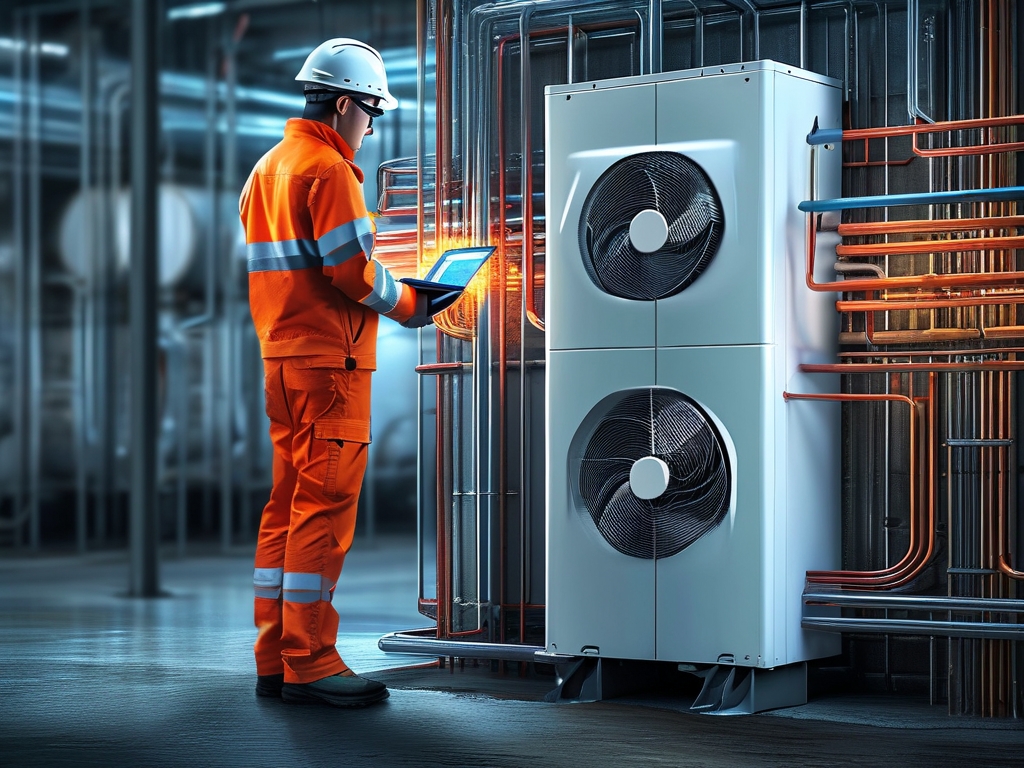Big Data Refrigeration Engineer: The Emerging Role in Sustainable Technology

In an era where data centers consume approximately 1% of global electricity—a figure projected to rise exponentially—the intersection of big data and refrigeration engineering has become critical. The role of a Big Data Refrigeration Engineer is no longer a niche specialization but a linchpin in achieving energy efficiency, sustainability, and operational excellence. This article explores the growing demand for these professionals, their responsibilities, required skill sets, and the transformative impact they bring to industries ranging from cloud computing to industrial manufacturing.
The Rise of Data-Driven Cooling Solutions
Modern data centers, which power everything from social media platforms to AI algorithms, generate immense heat. Traditional cooling methods, such as air conditioning, are energy-intensive and environmentally unsustainable. Enter big data refrigeration engineering: a discipline that leverages real-time analytics, machine learning, and IoT sensors to optimize cooling systems. By analyzing terabytes of operational data—server workloads, ambient temperature fluctuations, and coolant flow rates—engineers can dynamically adjust cooling mechanisms to reduce energy consumption by up to 40%.
For instance, companies like Google and Microsoft now use AI-powered predictive models to anticipate cooling needs, ensuring servers operate at peak efficiency while minimizing carbon footprints. This shift has created a surge in demand for professionals who can bridge the gap between refrigeration engineering and data science.
Key Responsibilities of a Big Data Refrigeration Engineer
- System Design and Optimization: Developing cooling architectures tailored to hyperscale data centers or industrial facilities, incorporating renewable energy sources like liquid immersion cooling or geothermal heat exchange.
- Data Analytics Integration: Implementing machine learning algorithms to predict thermal loads, detect inefficiencies, and automate adjustments in real time.
- Sustainability Compliance: Ensuring systems meet global standards such as LEED certification or the EU’s Energy Efficiency Directive.
- Cross-Disciplinary Collaboration: Working with software developers, electrical engineers, and sustainability experts to align cooling strategies with broader organizational goals.
Essential Skills and Qualifications
- Technical Expertise: Proficiency in computational fluid dynamics (CFD) software, Python/R for data analysis, and IoT platforms like AWS IoT or Azure Sphere.
- Domain Knowledge: A deep understanding of thermodynamics, refrigeration cycles, and energy storage systems.
- Certifications: Credentials such as Certified Energy Manager (CEM) or ASHRAE’s Building Energy Modeling Professional (BEMP) are highly valued.
- Innovation Mindset: The ability to pioneer solutions, such as using waste heat from data centers to warm commercial buildings—a practice already adopted in Stockholm’s “data heating” projects.
Industry Trends Driving Demand
- Hyperscale Data Centers: With cloud providers investing billions in new facilities, efficient cooling is a top priority. Amazon’s $10 billion pledge for carbon-neutral data centers by 2025 underscores this urgency.
- Climate Change Regulations: Governments worldwide are imposing stricter emissions targets, compelling industries to adopt smart refrigeration technologies.
- Edge Computing: Decentralized data processing requires localized cooling solutions, creating opportunities for engineers to design compact, adaptive systems.
Challenges and Future Outlook
Despite the promise, challenges remain. Retrofitting legacy systems with AI-driven tools requires significant capital, and the talent gap persists: fewer than 15% of engineering graduates possess dual expertise in data science and refrigeration. However, universities and corporations are launching specialized training programs to address this shortage.
Looking ahead, the role of Big Data Refrigeration Engineers will expand into emerging fields like quantum computing (which demands near-absolute-zero temperatures) and green hydrogen production (requiring cryogenic expertise). As industries prioritize decarbonization, these engineers will be at the forefront of innovation, turning thermodynamic challenges into sustainable victories.
The recruitment of Big Data Refrigeration Engineers is not just about filling a job vacancy—it’s about investing in a sustainable future. By merging cutting-edge analytics with refrigeration expertise, these professionals are redefining how industries manage energy, reduce waste, and combat climate change. For organizations aiming to lead in the green tech revolution, securing top talent in this field is no longer optional; it’s imperative.





